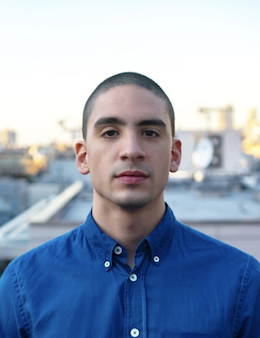


このシリーズでは、当社のコミュニケーションアドバイザーであるサシャ・カヴェリーナが、スタートアップビザの申請に成功した起業家たちへのインタビューを通じて、渋谷のスタートアップ創業者について学ぶことができます。彼らのストーリーを読み、渋谷を選んだ理由から、スタートアップビザ申請のコツまでを学びましょう。フランス在住のアスリート、ビラル・カルーニが初めて日本を訪れた時、スタートアップの道に進むとは思いもよらなかった。しかし、人々の長寿に関する知識のギャップを発見した彼は、新たなスタートアップビザ制度を利用して移住し、ウェルネススタートアップ「ekei labs」を通じて、世界の老齢化問題への解決策を開発することを決意した。

こんにちは、ビラル!起業家としての道のりについて教えてください。
起業家としての道を歩み始める前、私はスポーツに熱中しており、タイボクシングのキャリアも考えていました。しかし、2017年に日本を訪れたことが転機となりました。地元の友人が慶應義塾大学で長寿に関する研究を行っており、最近発見された抗老化分子「NMN」に焦点を当てていました。
最初は懐疑的でしたが、自身の研究を進めていくうちに、人間の寿命の限界を突破するアイデアに完全に魅了されました。元アスリートとして、自分の身体との特別なつながりがあり、健康を維持して長く生きるという考えは、私にとって非常に共感できるものでした。
翌年、長寿の科学について学びを深めました。研究者とのメールでのやり取りに没頭し、NMNを製造する中国の実験室を訪問しました。2018年末、私は日本で会社を設立する決断をしました。
なぜ日本を選んだのですか?
その理由はいくつかあります。65歳以上の人口が29%を占める日本は、世界一の高齢化社会です。高齢化問題が最も深刻な場所で事業を展開することは、最もやりがいのあることだと考えました。さらに、日本の栄養市場は成熟しており、高齢者の85%がサプリメントを毎日摂取しています。大学には多くの生物学研究者がおり、学術界から人材を惹きつけるのも容易です。
日本を訪れて製造業者を訪問し、重要な人脈を築くために何度か来日しました。これらの経験は、私のソリューションを日本市場で展開することが、多くの日本人の問題解決に役立つという信念を強化しました。

スタートアップを設立してから、どのように進化してきましたか?
2019年に最初のソリューションをリリースしました。その際は、日本で最初のアンチエイジングサプリメントの製造を開始しました。製造体制の構築に積極的に取り組んでいましたが、多くの失敗を犯しました。2020年にはパンデミックと国境封鎖によりプロセスが鈍化しましたが、この経験から、単にサプリメントを販売するだけでは持続可能なビジネスにならないと気づきました。
多くのスタートアップ同様、私たちは事業転換を決断しました。現在取り組んでいる主な課題は、長寿に関するカスタマイズされた教育を提供するフレームワークの構築です。老化に関する異なるバイオマーカーを用いてバイオポートレートを作成すれば、個々のライフスタイルに合わせたパーソナライズドな推奨事項を提供できると考えます。
事業計画で最も野心的な部分は、個人のバイオポートレートを基にしたインタラクティブビデオゲームの開発です。私は、これがデジタルヘルスケアの概念を再定義し、身体とインターフェースの関係を再構築すると信じています。データプライバシーの課題にも取り組む必要があり、現在スイスにあるデータデザイン企業と既に協議中です。
長寿は今後数十年間で注目されるテーマとなるでしょう。最大の課題は、現在の大多数の人々向けに長寿を民主化し、高齢化社会への移行に備えることです。– Bilal
渋谷スタートアップビザについてどのように知り、申請を決意したのですか?
日本での事業設立を検討していたため、現在渋谷ウェルカムサービスのディレクターである田中美穂氏に連絡を取り、行政書士を紹介してもらった際に、新しい移民制度について偶然知りました。彼女のアドバイスに従い、1年間の渋谷スタートアップビザを申請することに決めました。
ビザの手続き支援だけでなく、渋谷ウェルカムサービスが起業家の日本でのソフトランディングを支援してくれる点が、私にとって最も魅力的な要因の一つでした。チーム全体が非常に経験豊富で、スタートアップの構造を深く理解しているように感じます。初めての起業家として、設立手続きや法的手続きに広範な支援が必要だと考えています。
渋谷スタートアップビザの申請のためにどのような手順を踏みましたか?
このリストから必要な書類をすべて準備し、渋谷ウェルカムサービスに提出しました。ビジネスモデルを説明することは、マイルストーンを整理し、アイデアを異なる角度から見る良い練習になりました。
フィードバックが予想以上に早く返ってきて、資金調達計画の詳細をさらに充実させたビジネスプランを再提出する必要がありました。その後、審査員との30分間のプレゼンテーションと質疑応答セッションが行われました。
数週間後、申請が承認され、承認書が発行されました。
おめでとうございます!次のステップは何ですか?
承認書が発行された後、東京の入国管理局で「指定活動ビザ」の資格証明書を申請する必要があります。現在パリ在住のため、直接申請できませんが、渋谷ウェルカムサービスが行政書士を紹介してくれ、その方が代理で資格証明書を申請してくれます。発行まで2~3ヶ月かかり、フランスに郵送されます。その後、日本大使館でビザを申請します。旅行制限を考慮すると、到着日は予測困難です。
国境が再開次第、睡眠も休日も取らずにスタートアップの業務に全力投球します。最初の12ヶ月間で達成すべき計画は山積みです:生物学、ゲームデザイン、ソフトウェアエンジニアリングの経験を持つ人材の採用、会社設立、製品の商業化、アプリのベータ版リリース、そしていくつかのサプライズ!資金調達という重要な任務も私の肩にかかっています。
渋谷ウェルカムサービスチームの皆さんに、日本での成功を支援してくださったことに、心から感謝しています。